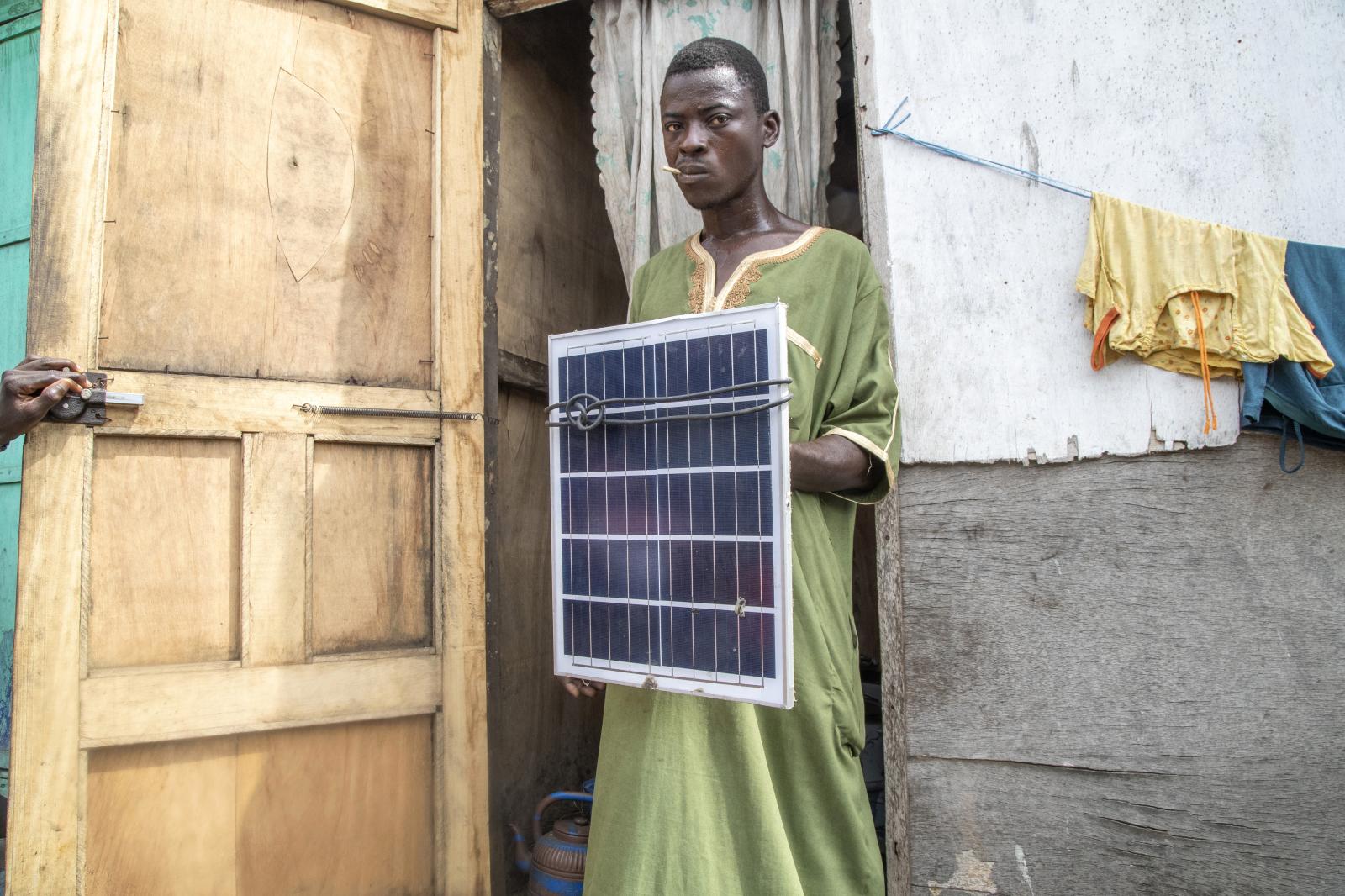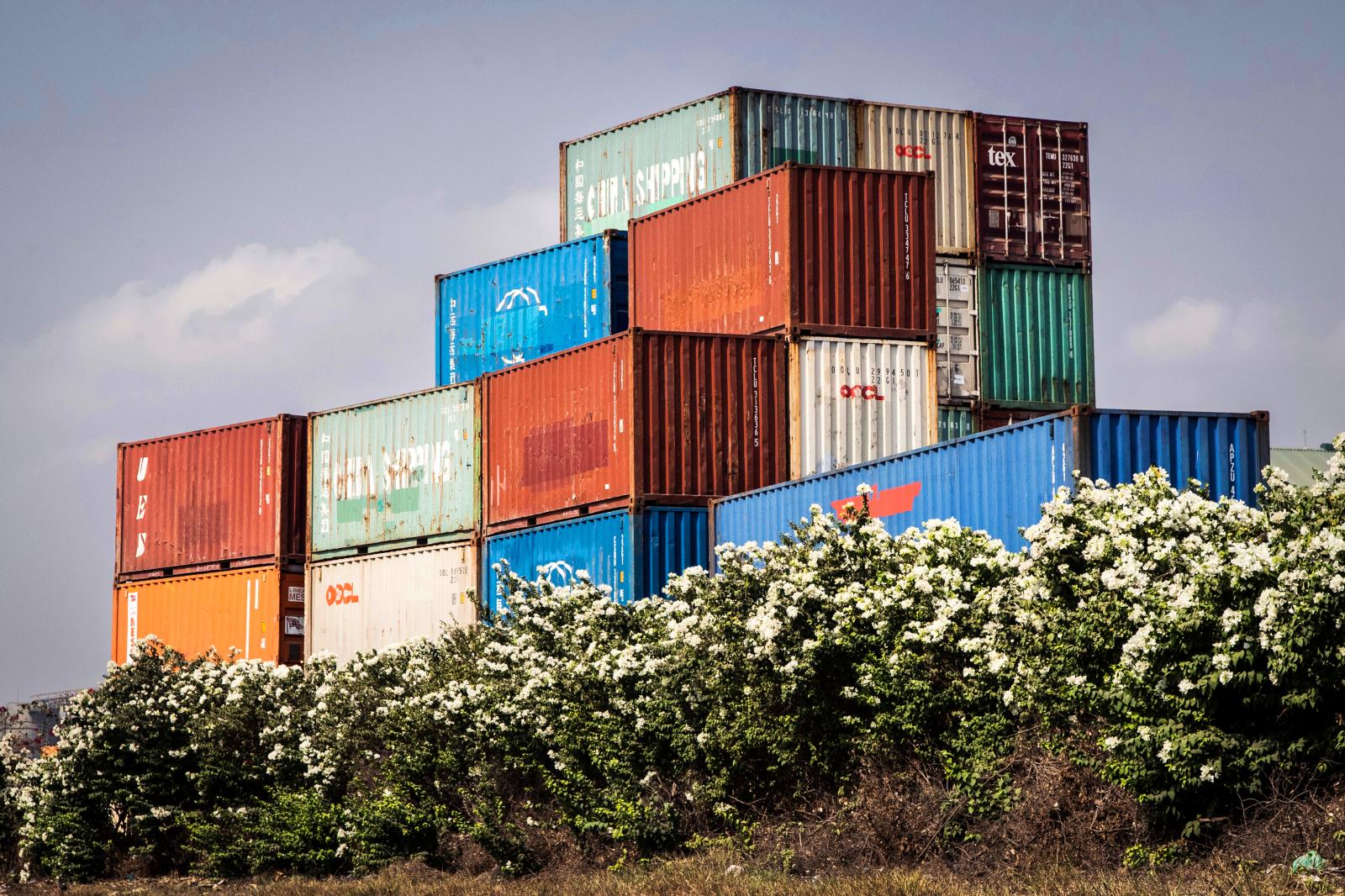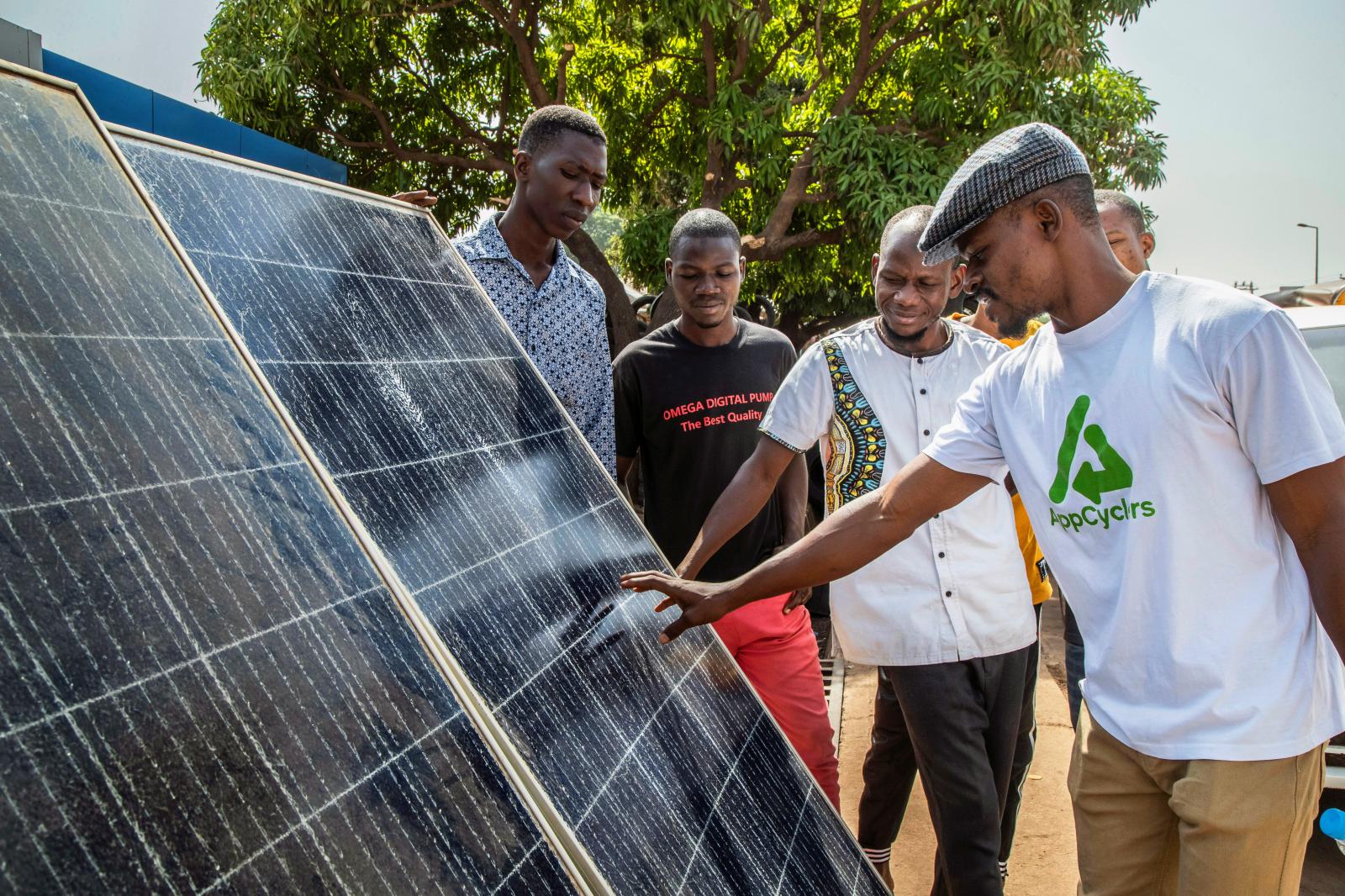Public Story
Solar Waste / Solar Kiosk
Summary
With no regulations for professional solar waste disposal in most African countries, solar waste becomes part of the general e-waste problem.
Ghanaian entrepreneur Edward Osew has invented a solar kiosk to provide solar energy to people without access to electricity. He is working hard to solve the problem of solar waste.
Ghanaian entrepreneur Edward Osew has invented a solar kiosk to provide solar energy to people without access to electricity. He is working hard to solve the problem of solar waste.
Solar Waste
The first solar modules came onto the market in the 1990s. With a lifespan of 25 years, the disposal of disused models has been discussed since the early 2020s. Experts estimate that by 2030 several million tons of "module scrap" will be generated. The expansion of renewable energies is being promoted in many African countries, but cheap products with a short lifespan are often used. A lack of maintenance of PV systems and a lack of trained solar experts on site promote the increase in waste. With no regulations for professional solar waste disposal in most African countries, it becomes part of the general e-waste problem.
The broken materials are separated by hand, the unusable material is burned and is releasing toxic gases. Batteries of solar systems are the most valuable and at the same time most toxic objects. In order to extract the valuable lead, batteries are opened with machetes in factories at the port, the acid is thrown away and the lead is melted down. Customers are countries like Germany, the USA or China to reuse them in new electronic items. Solar panels don't even find buyers for recycling as they are worthless to e-waste collectors. Responsible companies store them. This unprofessional recycling harms health and the environment.
Unless solutions are found for proper disposal and recycling of solar waste, the footprint of solar energy will not be much better than that of fossil fuels and climate change will continue to accelerate.
The Solar Kiosk
Ghanaian entrepreneur Edward Osew has invented a solar kiosk to provide solar energy to people without access to electricity as easily and cost-effectively as possible.
He relies on long-lasting design and repairable individual parts that can be repaired by trained electricians.
This avoids waste, protects the environment and saves costs.
Once the Solarkiosk is installed it operates on a rental system, allowing people to rent or purchase the lamps. Additionally, it provides basic electricity for charging phones or radios. To ensure the sustainability of the system, Osew and his team have trained locals to become electricians. These trained individuals are responsible for maintaining the system and repairing any broken parts at designated "Repairshops." The ultimate goal is to create a profitable model that can sustain itself over time.
While the development of the Solarkiosk is still ongoing, significant progress has been made thanks to the support provided by Villageboom and Atmosfair. Currently, 72 solar kiosks have been produced, with most of them already installed in various locations.
The project was supported by Stiftung Kulturwerk & Lagois photo grant





















